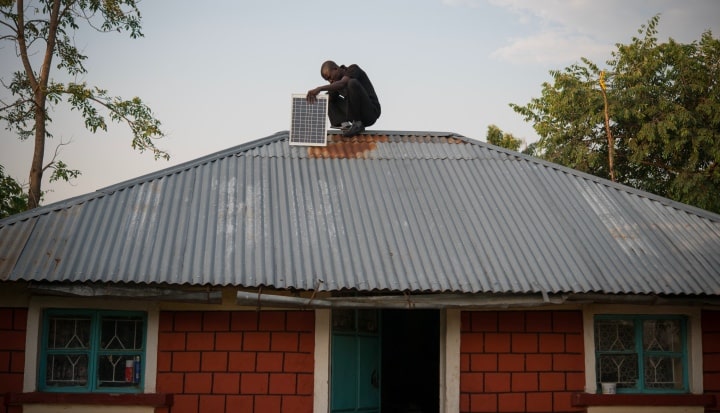That’s why we commissioned 60 Decibels to aggregate and share, for the first time, data collected on 49 off-grid solar companies in a new report – “Why off-grid energy matters” – launching this week at the Global Off-Grid Solar Forum & Expo in Nairobi. This was no small undertaking – it includes data from across 17 countries and involved nearly 35,000 customer interviews. In a sector where a lack of available data is a significant challenge, this is a meaningful contribution, and we hope it will be useful for investors, companies, and others with an interest in this area.
So what impact does energy access through off-grid solar have on consumers? The report finds that the impact story is a largely positive one. The consistent message from customers is that energy access is making a positive difference in their families’ lives, with 88 per cent reporting that their quality of life has improved thanks to the off-grid product or service they purchased.
And some of these customers are using this energy access to contribute to income generation; one fifth of customers use their off-grid products for income-generating activities, including kiosks, shops and restaurants. Added to this, the climate impact is significant. Households report significant reductions in kerosene use after gaining off-grid access.
But the report also finds that the sector is not reaching as many of the poorest customers as it potentially could be. A little over a third (37 per cent) of off-grid customers surveyed live in poverty (based on the World Bank’s $3.20 a day definition), compared to an average national poverty rate of 60 per cent across the countries involved. Certainly good progress – but there’s room for more growth.
It also finds that as companies grow, they appear to focus less on the poorest consumers as a proportion of their customer base. While this may be a concerning trend, a big caveat is that they may still reach larger absolute numbers of low-income customers – which is what we think matters most from an impact perspective. It’s also worth noting that this finding is based on a smaller sample of companies where repeated data points were available over time – we hope that future research can help to better understand the finding and test its robustness.
The report concludes with a call for more financial innovation to increase reach and affordability. We agree these are important priorities to help the sector collectively meet Sustainable Development Goal 7, access to affordable and clean energy.
But, at the same time, these businesses need to be commercially sustainable. Because if they’re not sustainable, they won’t survive, which means no impact at all.
As Geoff Manley (CDC Group) notes in the foreword of the report, this is a sector where CDC’s dual mandate of development impact and financial sustainability often goes hand in hand. For example, continually improving product design and quality, sales practices and customer service will lead to more satisfied customers, which in turn can underpin the sales growth and reliable repayment needed for financial success.
But that’s not always the case. Some strategies to increase affordability such as longer contracts or lower deposits may increase business risks or companies’ working capital financing needs. That’s a big ask for a sector that, despite, its remarkable achievements to date, has yet to reach overall financial sustainability.
To support off-grid solar companies to expand their reach to the poorest customers as we try to meet SDG 7, donors and governments should be prepared to provide well-targeted subsidies to help fill the gap, alongside investors that can finance the more commercial market segments. There is a lot more work to be done to figure out where and how to draw these boundaries and collaborate to support the long-term growth and sustainability of the sector.
At CDC, we invest in off-grid solar companies across countries in Africa and Asia – including several that contributed data to the report – with the aim of improving energy access and efficiency. We have also engaged with a number of broader efforts to drive impact and growth in the sector, including recent work with GOGLA to launch an off-grid solar Consumer Protection Code, and to develop a set of impact metrics which allow companies and investors to comprehensively estimate the impact of their businesses or investments. We look forward to continuing to engage with all these exciting challenges as we further build our off-grid investment portfolio in the future.
This article was previously featured on the CDC website and is reproduced with permission.










